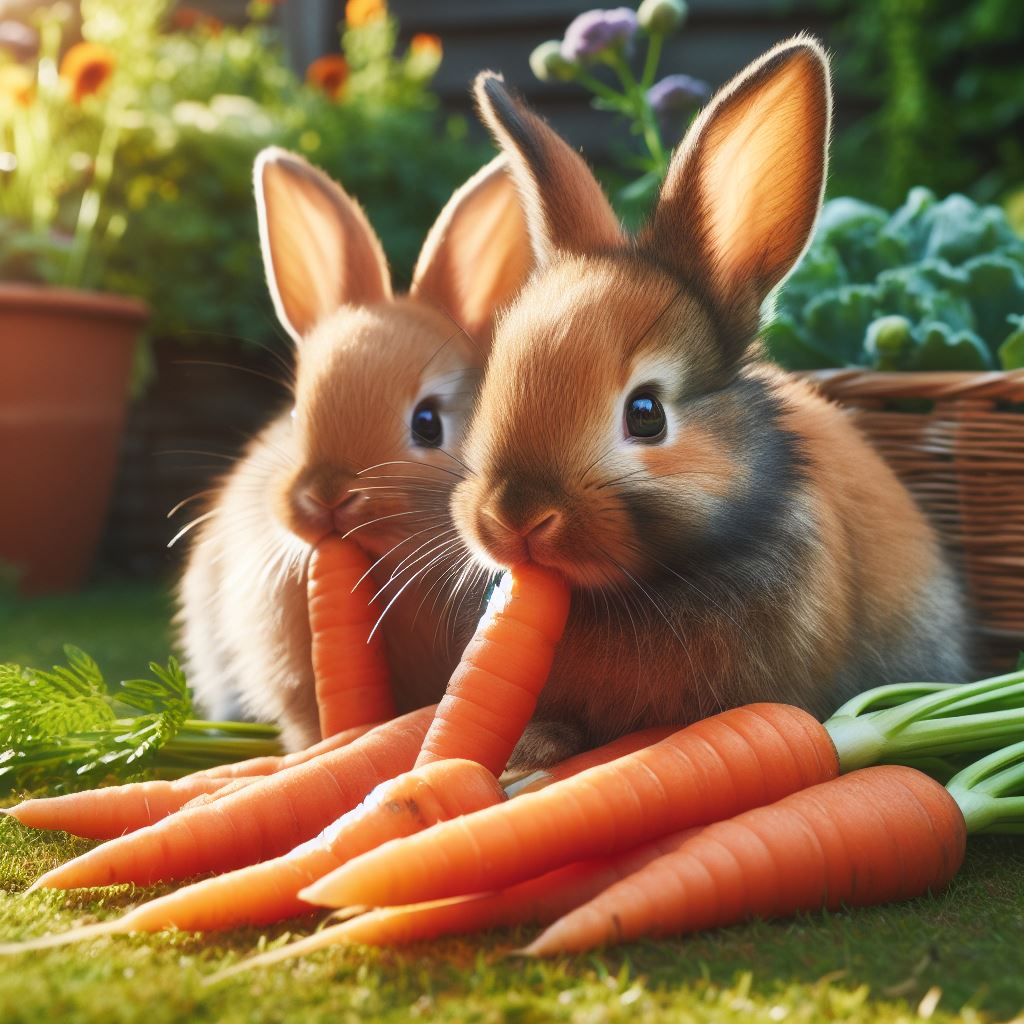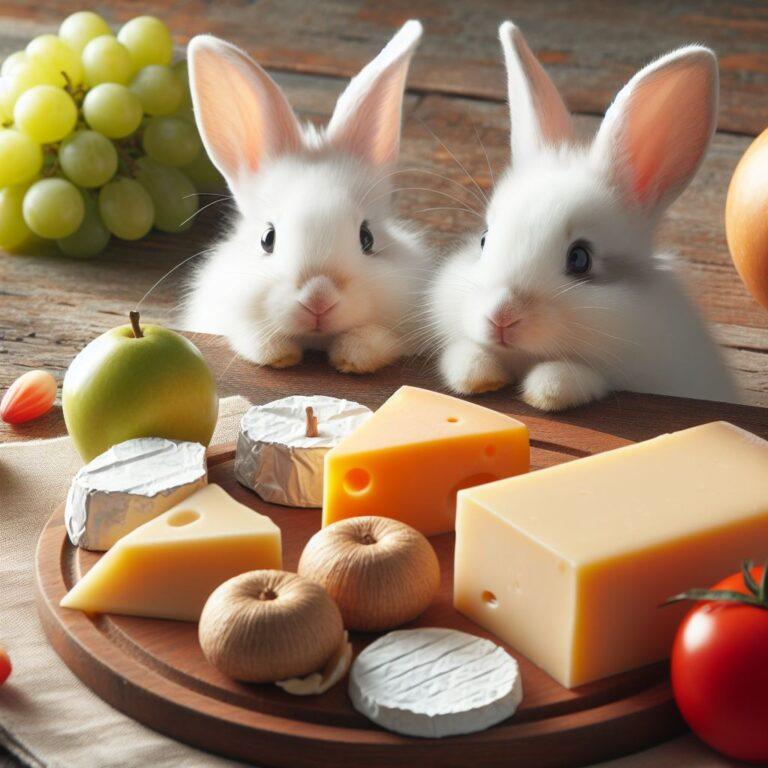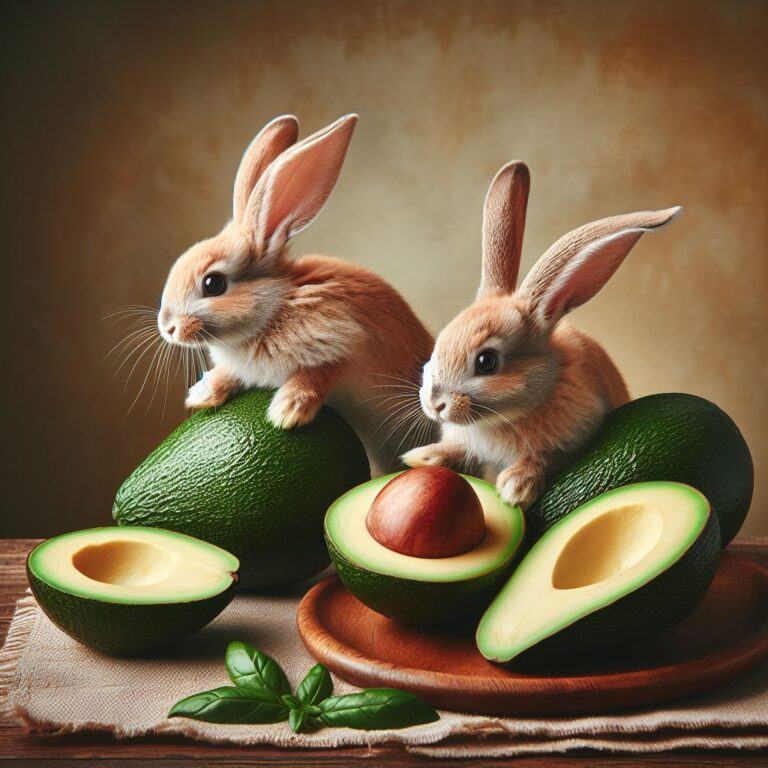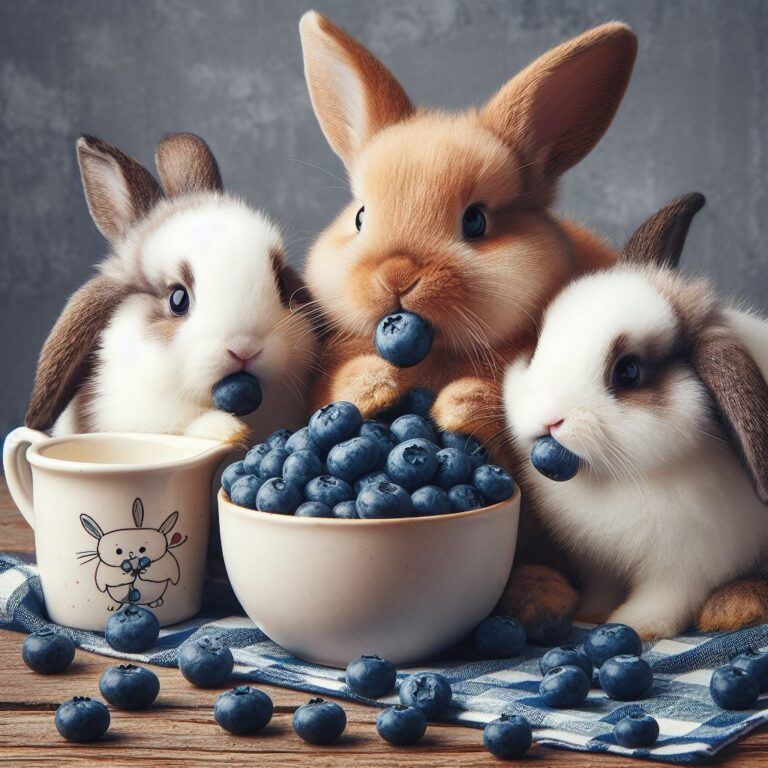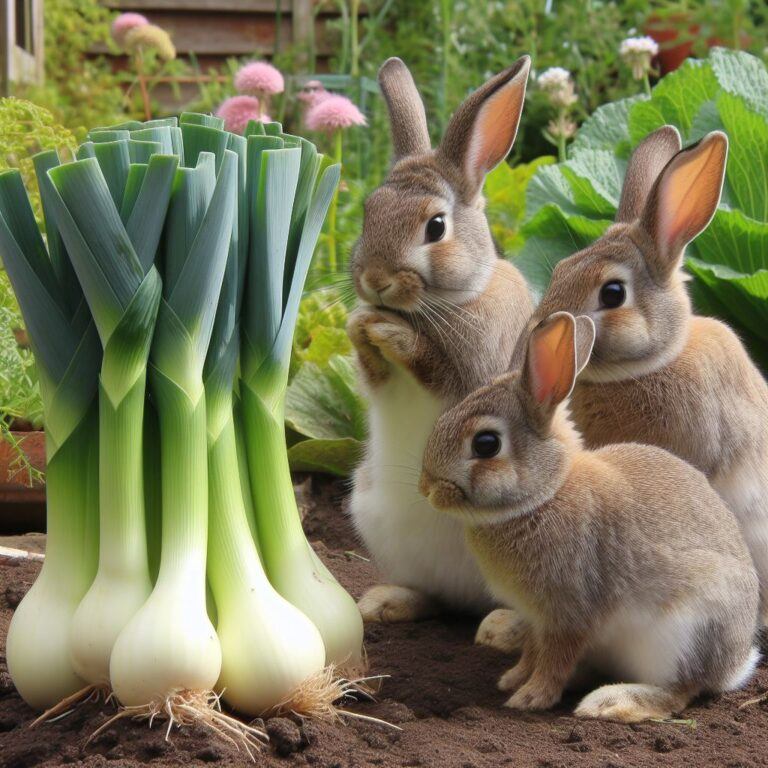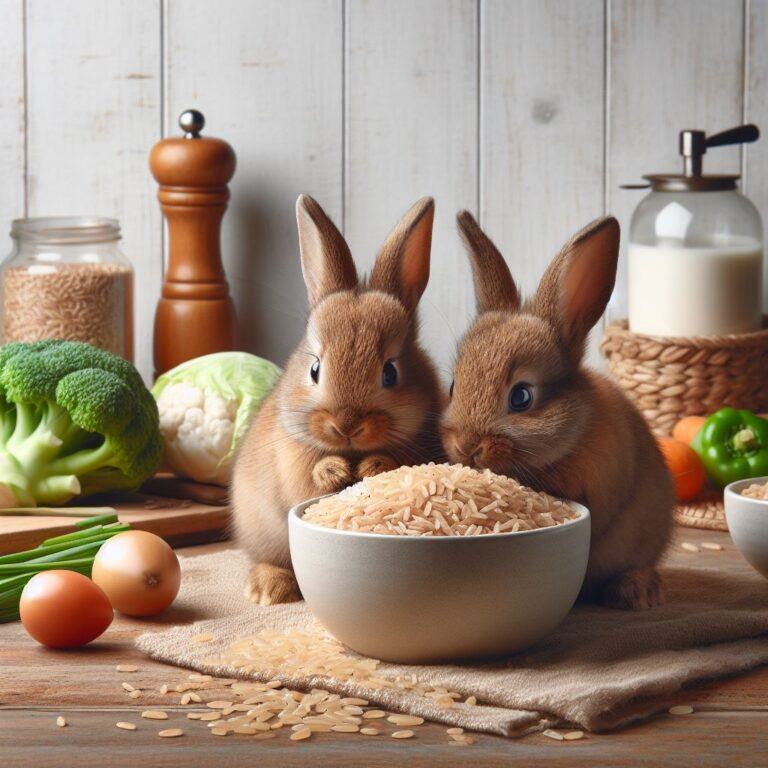Can Rabbits Safely Eat Carrots
YES, carrots are safe for rabbits to eat in moderation. They’re a good source of vitamins, such as vitamin A, which is great for their vision and immune system. They also offer minerals like potassium and biotin. But, carrots also contain sugar, which should be limited in a rabbit’s diet.
These orange veggies should not make up the bulk of their diet. Being high in sugar can lead to obesity and dental problems when fed in excess. I’d caution you to treat carrots as you would a sugary snack for a child – occasional treats, not everyday staples.
To put it into perspective, 100 grams of carrots have about 4.7 grams of sugar. I’m sure you’ve seen the countless images of rabbits munching on carrots, just like in the cartoons. But, when it comes to serving size, think small.
A couple of thin slices of carrot once or twice a week is ample for your rabbit. This will allow them to reap the health benefits without the risk of overconsumption. It’s a delicate balance to strike for the welfare of your furry friend.
So, now you know that while carrots are on the menu, they’re not the main course. Hay, on the other hand, should be the constant in your rabbit’s diet, playing a key role that’s as crucial to their health as a roof is to a house.
Let’s look at the best way to give a balanced and nutritious diet to your rabbit, ensuring they stay healthy and happy.
Best Practices for a Healthy Diet
When it comes to feeding your rabbit, it’s crucial to understand that balance is key. Sure, carrots can be a part of their diet, but they are more of a treat than a staple.
The core of a rabbit’s nutrition should be hay. Why is that? Hay, particularly timothy, orchard, and oat hay, provides essential fiber that aids in digestive health and helps prevent obesity and dental issues due to the necessary chewing it requires.
Beyond hay, a rabbit’s diet should include a variety of vegetables to ensure a range of nutrients. Leafy greens like romaine, parsley, and spinach can be more beneficial daily than carrots could ever be.
Remember to introduce any new foods slowly to avoid digestive upset, and watch out for any adverse reactions as rabbits can be quite sensitive.
Let’s not forget about hydration. Clean, fresh water should always be available for your rabbit. Water aids in digestion and is vital for overall well-being.
Ensuring your rabbit drinks enough water is just as important as the solid food he eats.
Incorporating fruits and carrots should be done in moderation. A slice or two of carrots a few times a week is plenty.
This way, you’re treating your rabbit without going overboard on the sugar that’s present in carrots. A well-rounded diet with these components will lead to a healthier, happier rabbit.
Myths and Misconceptions Around Rabbits and Their Diet
It may surprise you, but the image of rabbits subsisting on a diet of carrots is fiction. In reality, a diet exclusively comprising carrots can lead to some serious health problems for these creatures.
Carrots are like candy to rabbits, a little goes a long way.
Another misconception is that rabbits don’t require a lot of care, especially when it comes to their diet. However, a proper diet is critical, and understanding the balance of nutrients is part of responsible rabbit ownership.
You might have also heard that pellets can be the core of a rabbit’s diet. While convenient, pellets should only be a supplement to ensure that your rabbit gets enough vitamins and minerals that might be missing from hay or vegetables.
Sometimes, even water is overlooked. Never underestimate the importance of clean, fresh water in your rabbit’s diet. It’s vital for digestion and overall health, and should always be readily available.
The key takeaway here? Educating yourself on the proper nutrition for your furry friend is essential.
With the right balance of hay, vegetables, and yes, the occasional small piece of carrot as a treat, you’ll ensure that your rabbit lives a happy, healthy life.
But, please always remember to consult with a vet if you’re unsure about your rabbit’s diet as they’ll give tailored advice that considers your specific pet’s needs.

